Supply Chain, 2019
Related Tactics (Michele Carlson, Weston Teruya, and Nathan Watson)
Museum of Capitalism, Anna-Maria and Stephen Kellen Gallery at the Parsons School of Design (2019)
interactive station with instructions, tools, packaging, and stickers for categorization
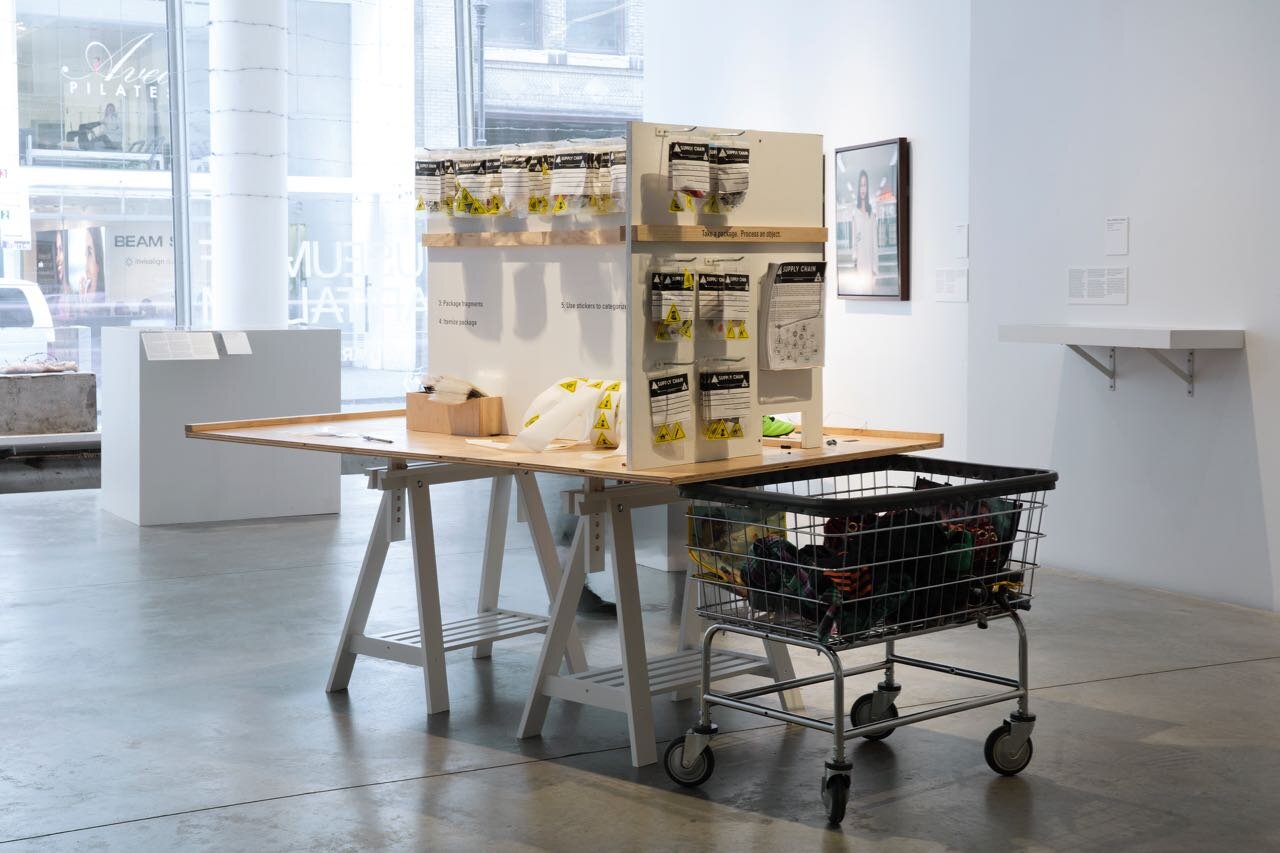
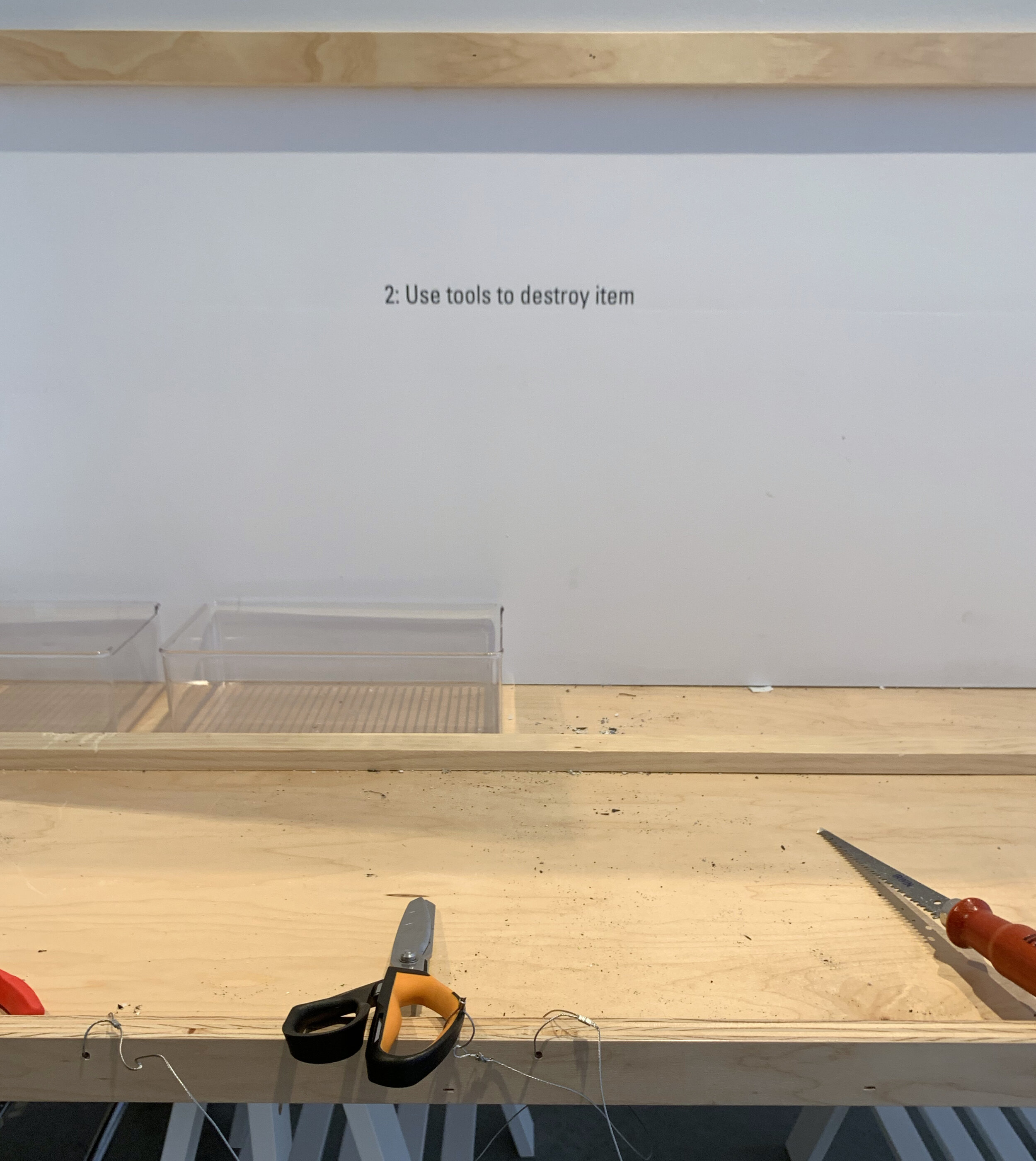
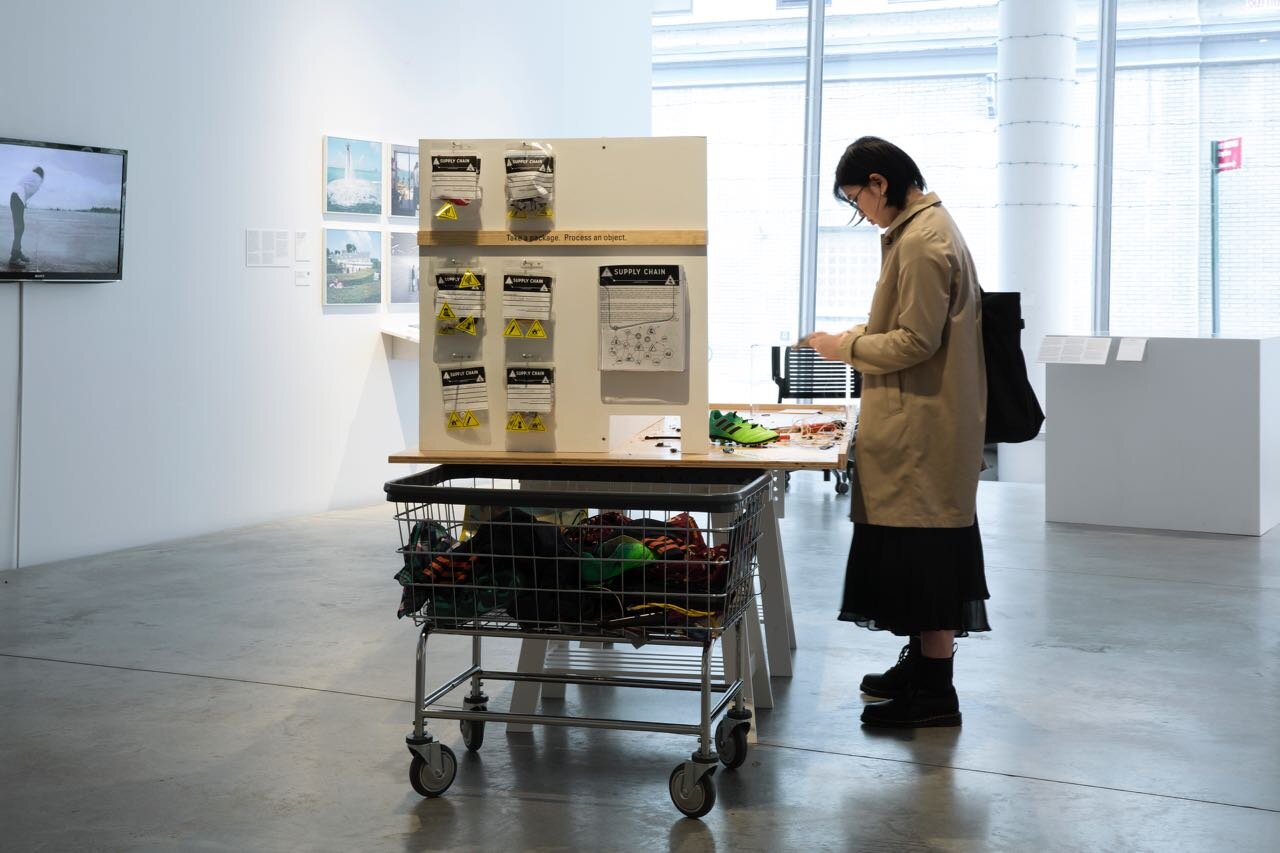
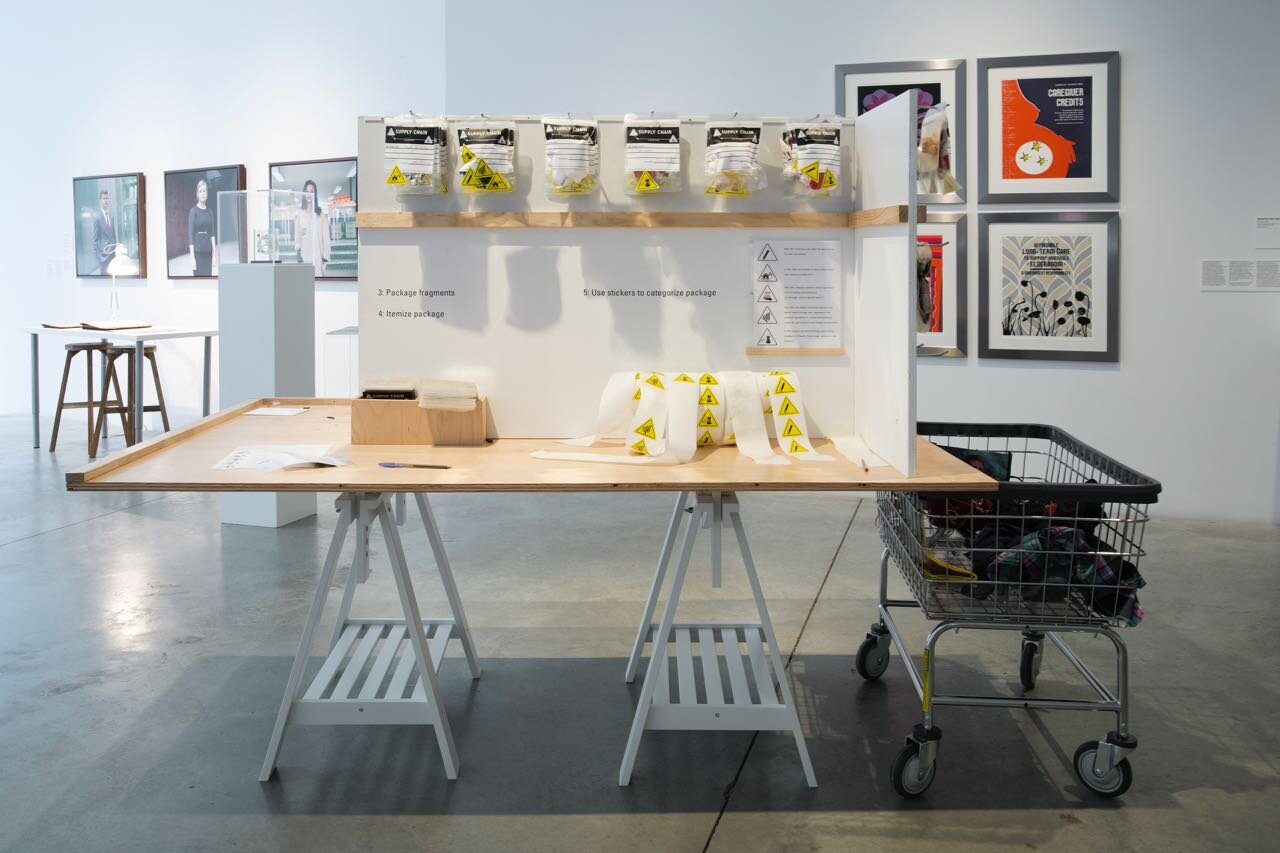
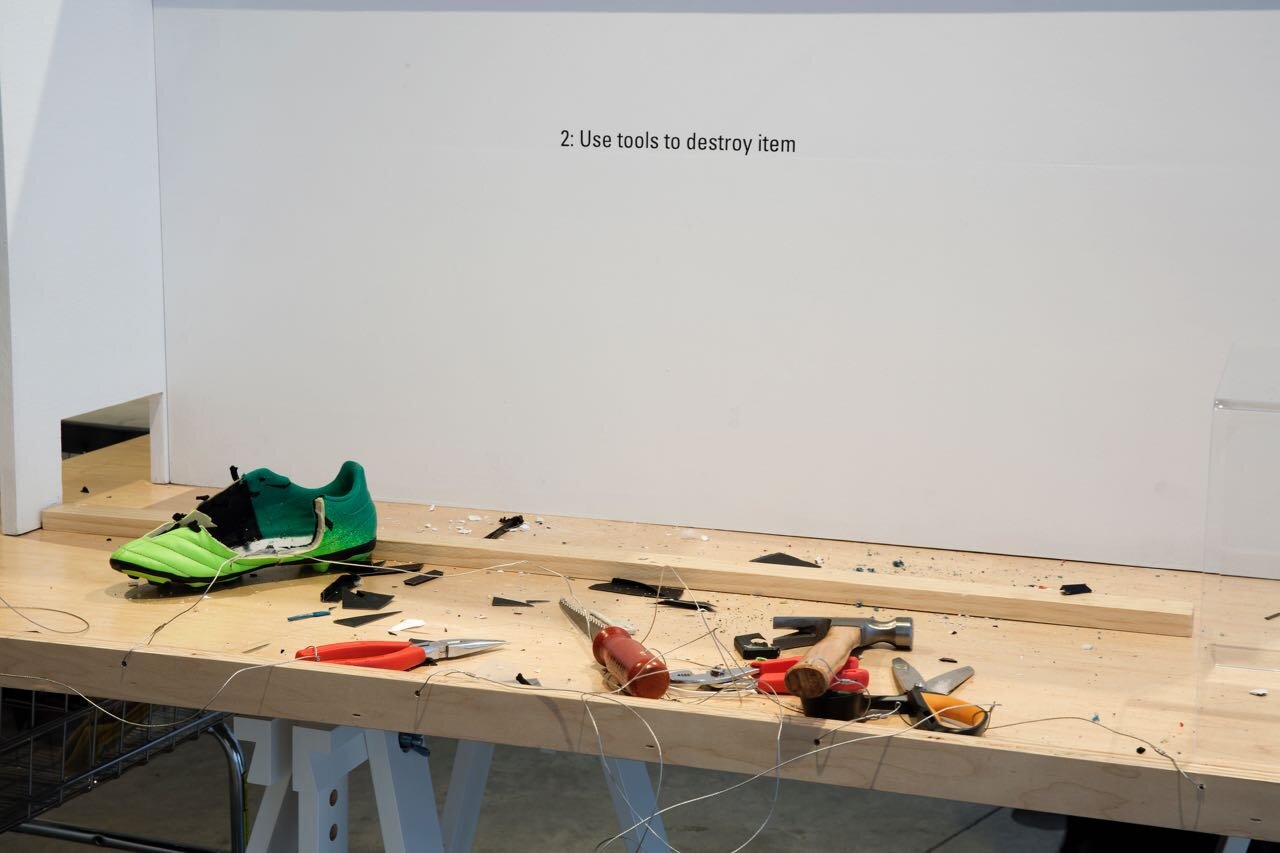
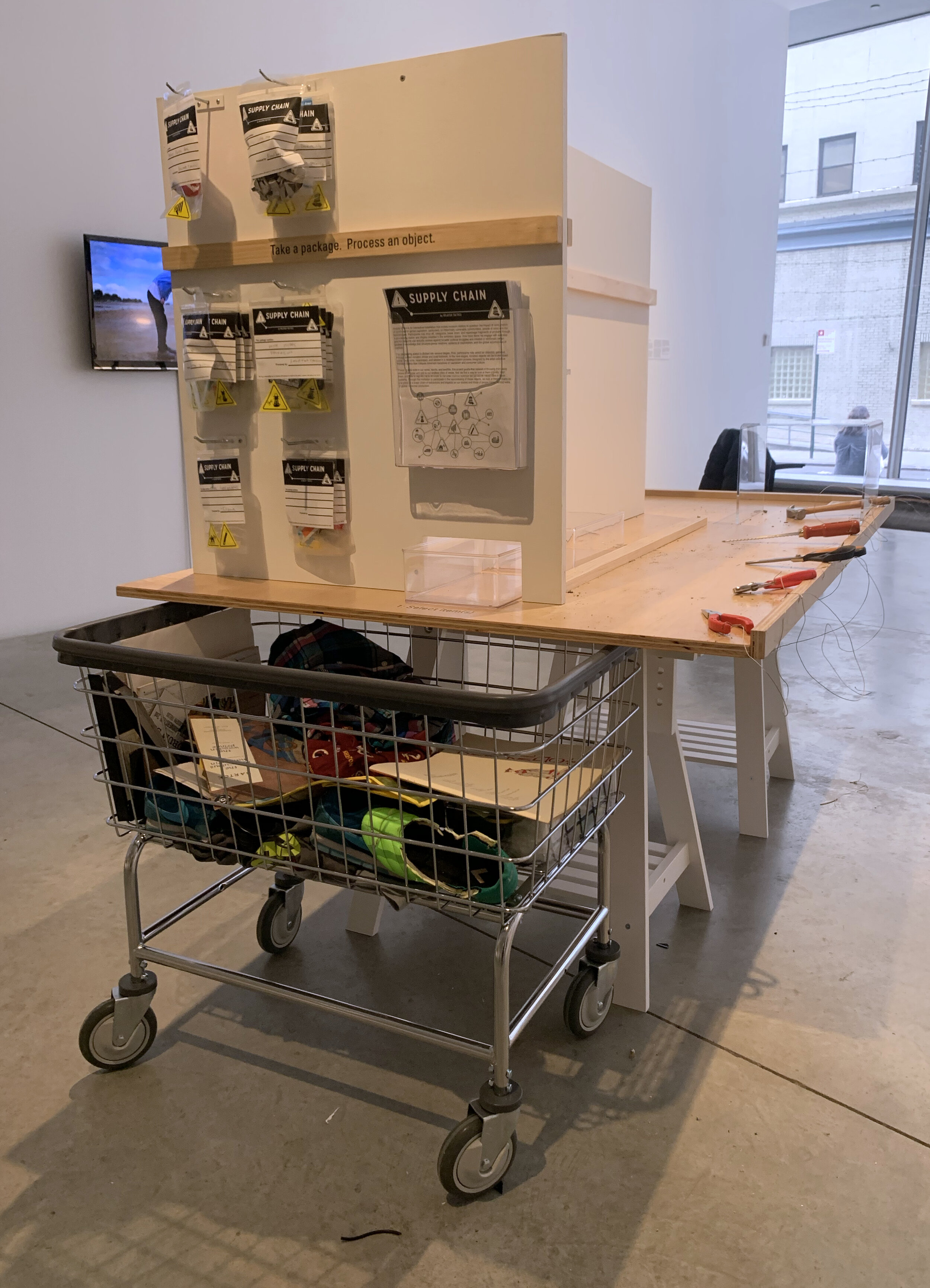
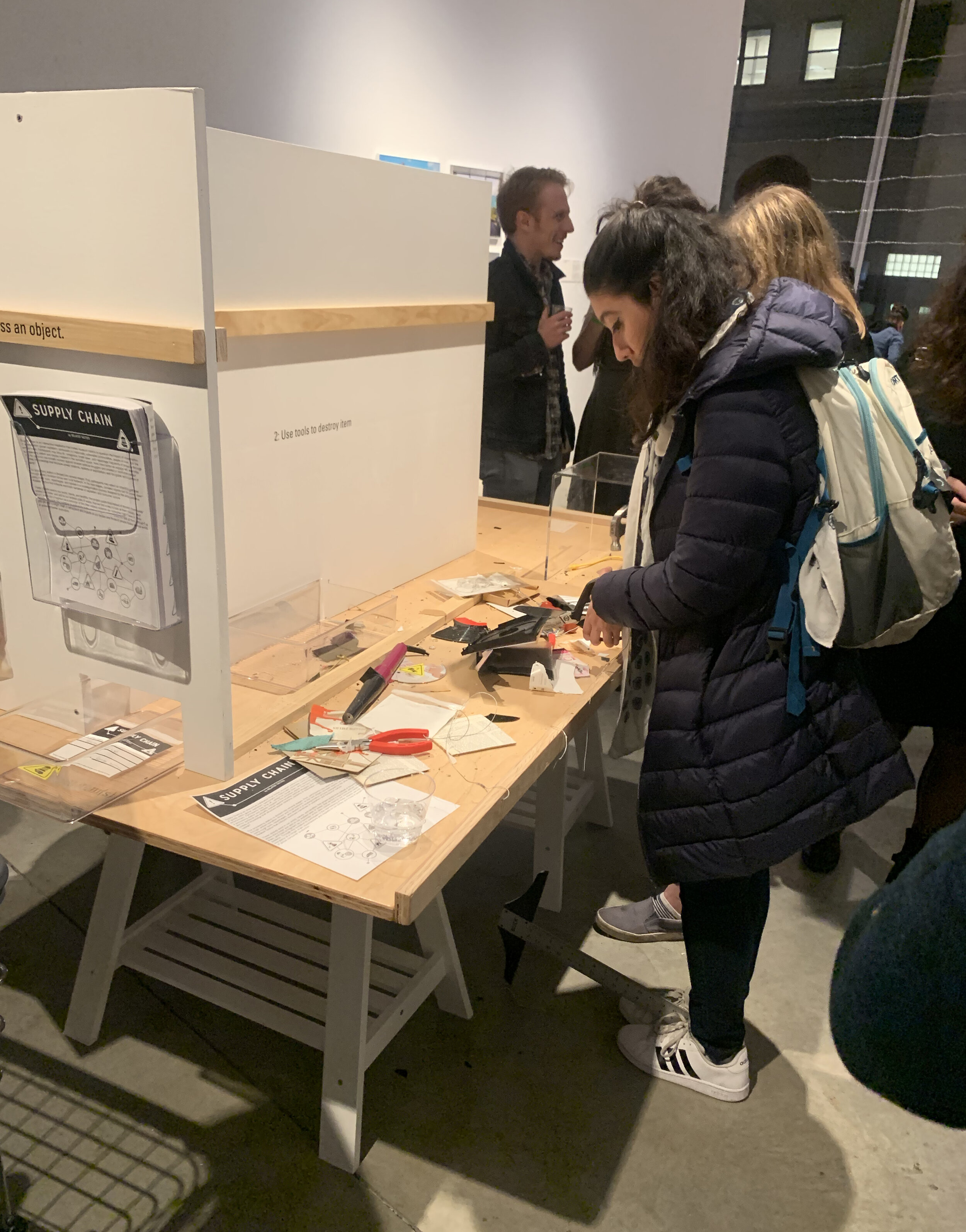

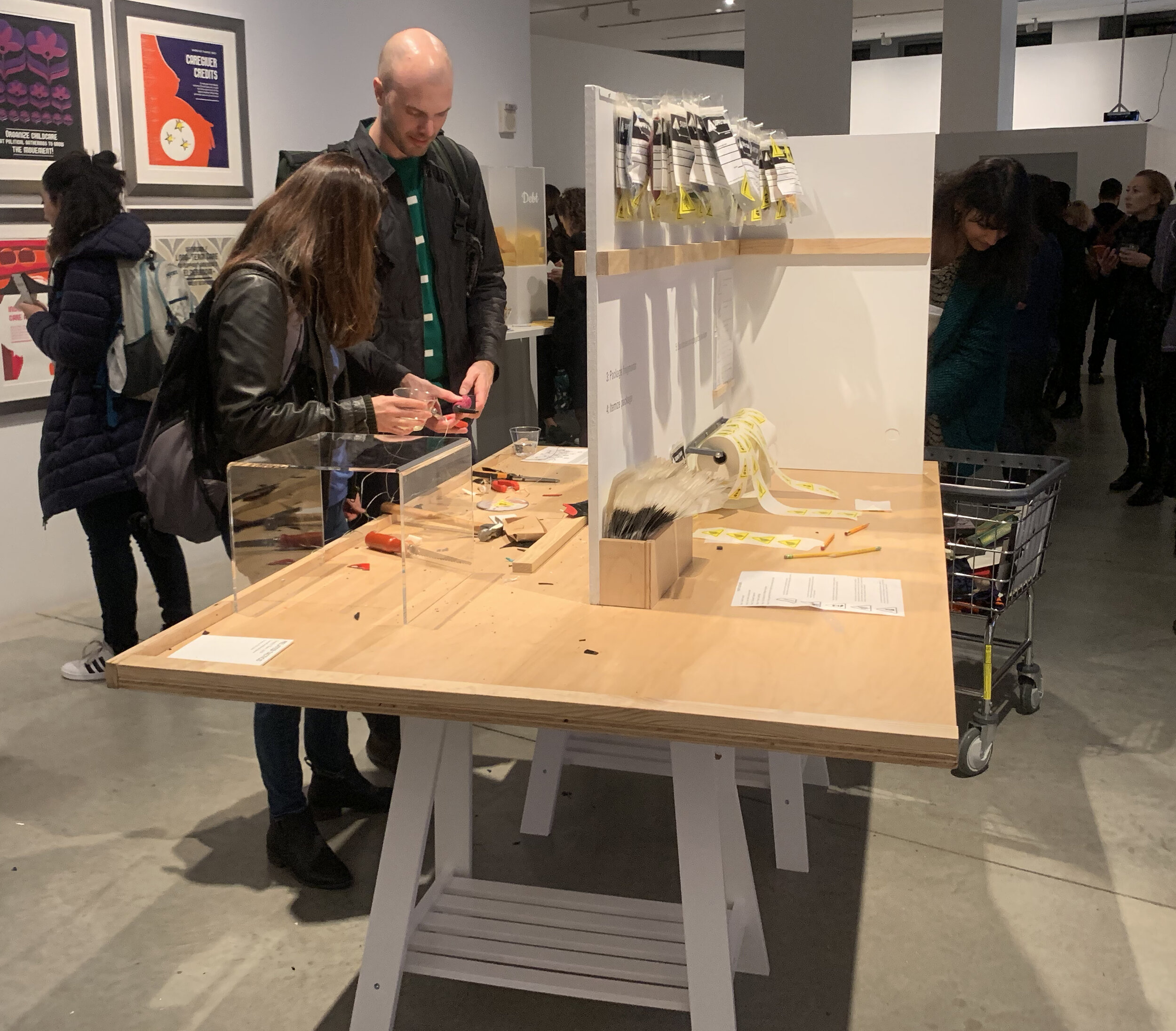
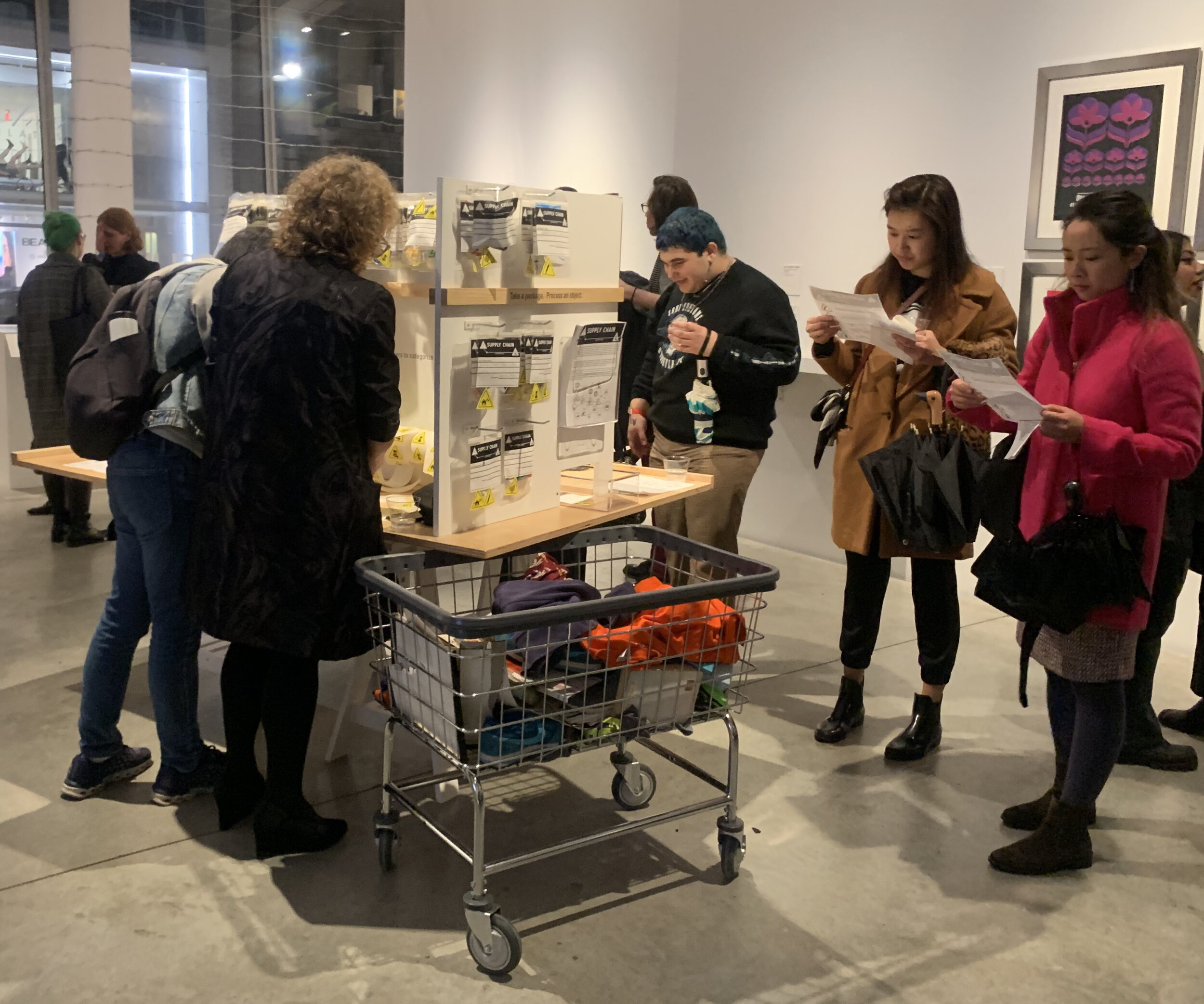



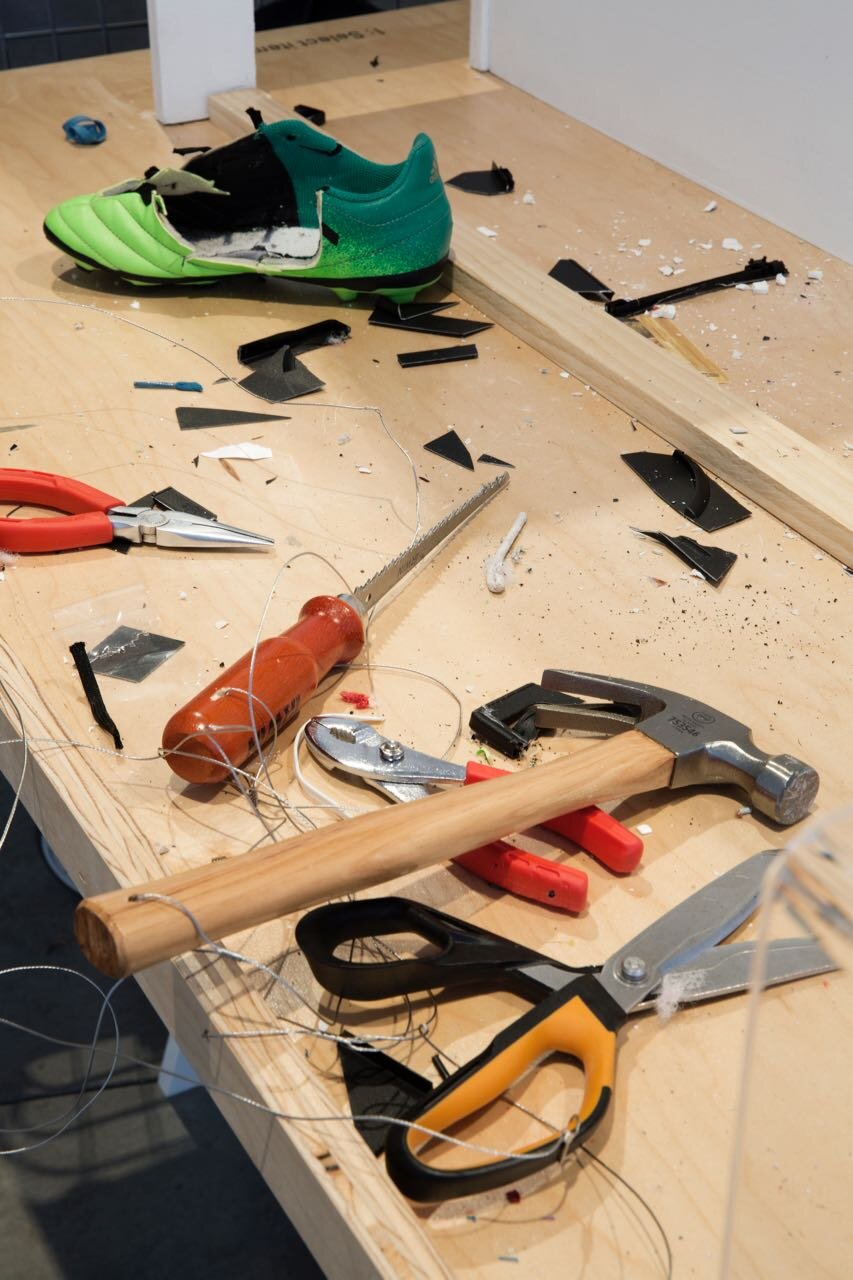

Supply Chain is an interactive installation by Related Tactics (Michele Carlson, Weston Teruya, and Nathan Watson) in the Museum of Capitalism (curated by Fictilis) that invites museum visitors to question the impact of consumption of goods within global capitalism, particularly on historically vulnerable communities, people of color, and the environment. Participants may drop off, categorize, break down, and repackage fragments of products through a processing station and display installed in the exhibition space. How have items we engage with everyday and for personal use actually worked against broader political struggles and created or reinforced certain bodies of knowledge that structure power relations, systems of exploitation, and the global accumulation of capital?
The processing station is divided into several stages. First, participants may select an object(s), gathered through artifact donation drives and local fieldwork. In the next stages, donated objects can be broken down using rough tools, repackaged, and labeled in a re-categorization process designed by the artist collective Related Tactics that critiques dominant narratives of capitalism and consumer culture.
These objects exist in our world, hands, and landfills: this project posits that instead of throwing them away where they fester and add to our endless piles of waste, that we find a way to look at them critically, mar them, and hold a fragment as a reminder of the often indirect violence our consumer habits and have in these systems. Through this invitation to participate in the reprocessing of these objects, we can all re-look at them critically as one piece of a longer chain of extractions and impacts on our bodies and those of people hidden behind these webs of global consumer production.